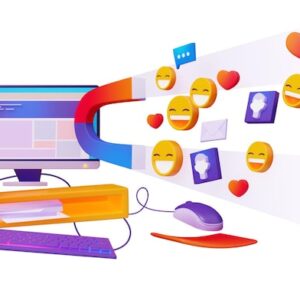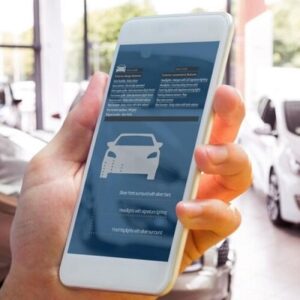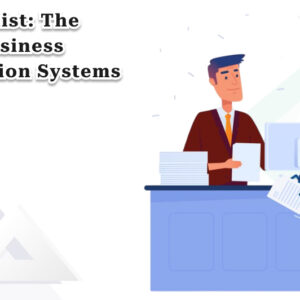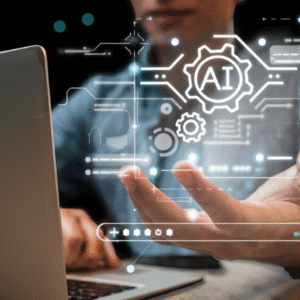In 2025, there will be a significant increase in demand for AI chatbot developers as companies adopt automation and smarter consumer experiences. Artificial intelligence-powered chatbots, ranging from virtual assistants and customer service bots to conversational commerce and HR automation, are revolutionizing several sectors’ operational processes.
If you’re looking to break into this growing field or level up your skills, this guide will walk you through everything you need to know to become a successful AI chatbot developer in 2025—skills, tools, learning resources, career paths, and insider tips.
Why AI Chatbot Development Is a Hot Career in 2025
The global AI chatbot market is booming. With advancements in natural language processing (NLP), machine learning (ML), and generative AI models like GPT-4.5 and beyond, companies are investing heavily in intelligent virtual assistants.
Here’s why AI chatbot development is one of the most promising tech careers this year:
- Chatbots are replacing traditional customer support systems.
- Enterprises are integrating conversational AI into internal workflows.
- Tools like OpenAI, Claude, and Rasa are accessible to individual developers.
- Remote and freelance chatbot development opportunities are abundant.
- AI-driven personalization is becoming a brand differentiator.
In short, this is a field where technical skill meets creative problem-solving, and there’s plenty of room to grow.
Who Is an AI Chatbot Developer?
An AI chatbot developer is a specialist who designs, builds, and maintains chatbots that use artificial intelligence to interact with users. These developers blend programming knowledge with AI and UX design to create bots that can understand, respond, and learn from human conversations.
They work with platforms like Dialogflow, Rasa, Botpress, Microsoft Bot Framework, and APIs from OpenAI, Cohere, or Google Vertex AI to bring conversational interfaces to life.
Skills You Need to Become a Successful AI Chatbot Developer
To thrive in this field, you’ll need a combination of technical, analytical, and soft skills. Here’s a breakdown of what matters most in 2025:
1. Programming Languages
- Python – widely used for AI, ML, and backend logic.
- JavaScript is essential for frontend integrations and Node. JS-based bots.
- TypeScript, Java, or Go can also be helpful, depending on the framework.
2. NLP and ML Fundamentals
- Understanding of how intents, entities, and utterances work.
- Ability to train and fine-tune NLP models.
- Familiarity with transformer models and LLMs.
3. AI & ML Frameworks
- TensorFlow, PyTorch, scikit-learn
- Hugging Face Transformers for working with LLMs
4. Chatbot Development Platforms
- Rasa
- Dialogflow CX
- Microsoft Bot Framework
- Botpress
- Voiceflow
5. APIs and Integration
- RESTful APIs for connecting bots to databases and third-party services
- Webhooks and event-based triggers
- Tools like Twilio, Slack SDK, and WhatsApp Business API
6. UI/UX for Conversational Design
- Understanding user flow, tone, and context in dialogue
- Designing fallback paths and user error handling
7. Version Control and DevOps
- Git and GitHub for code management
- Docker, CI/CD pipelines, and cloud hosting for production deployment
Learning Path: How to Start Your Journey in 2025
If you’re just starting, follow this roadmap:
Step 1: Learn the Basics of Programming
Master Python or JavaScript, focusing on writing clean, modular code.
Step 2: Understand AI and NLP Concepts
Take beginner-friendly AI/NLP courses on:
- Coursera (e.g., AI For Everyone, NLP Specialization)
- Udemy
- fast.ai
- OpenAI’s developer documentation
Step 3: Build Simple Chatbots
Start with rule-based bots using platforms like:
- Tidio or Landbot (no code/low code)
- Botpress (open-source with customization)
- Dialogflow Essentials (for basic intents and fulfillment)
Step 4: Dive into AI-Powered Chatbots
Learn to integrate GPT-based models (e.g., OpenAI’s ChatGPT API) or use open-source NLP libraries like spaCy, Transformers, or Rasa NLU.
Step 5: Work on Real Projects
Build bots for:
- Customer support
- Product recommendations
- Appointment booking
- Feedback collection
Add them to your GitHub portfolio and write case studies or blogs to showcase your expertise.
Step 6: Stay Updated
Follow AI research papers, attend webinars, join developer communities, and subscribe to newsletters like:
- OpenAI’s updates
- Papers with Code
- Chatbot News by Voicebot.ai
Freelance and Full-Time Career Opportunities
In 2025, AI chatbot developers are in demand across:
- SaaS companies are building onboarding bots
- E-commerce platforms offering personalized shopping assistants
- Healthcare tech for triage bots
- Financial services using chatbots for client queries
- HR tech firms are automating internal support
You can work:
- As an in-house developer
- With AI-focused product companies
- As a freelancer or consultant
- Through platforms like Upwork, Toptal, or Turing
Average salaries range between $80,000 $140,000 per year, depending on experience and location, with freelance rates often hitting $50–$100/hour or more.
Common Challenges and How to Overcome Them
- Keeping up with fast-changing AI tools
- Stay active in communities like Reddit’s r/MachineLearning, Hugging Face forums, or Stack Overflow.
- Handling ambiguous user queries
- Use fallback intents, sentiment analysis, and clarification flows.
- Deploying bots at scale
- Use containerization (Docker), auto-scaling servers (Kubernetes), and serverless architecture for cost-effective scaling.
- Ensuring data security and privacy
- Always comply with data protection laws like GDPR, HIPAA, and use tokenized data wherever possible.
Pro Tips for Standing Out as an AI Chatbot Developer
- Build and publish chatbot demos on your site or GitHub.
- Contribute to open-source chatbot projects.
- Join AI hackathons and competitions.
- Write technical blogs on Medium, Dev. To, or Hashnode
- Get certified in platforms like Dialogflow or Microsoft Azure AI.
Conclusion
It takes more than just learning tools to become a successful AI chatbot developer in 2025; you also need to comprehend human interaction and use AI carefully. The need for qualified developers is growing as companies in all industries shift to automation and conversational interfaces.
The field of AI chatbots has a lot of promise for anyone interested in reskilling, whether they are professionals, self-taught programmers, or students. Because the future of discussion has already arrived, begin learning, begin creating, and maintain your curiosity.




